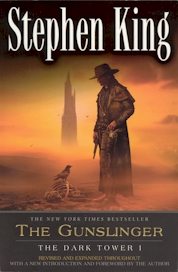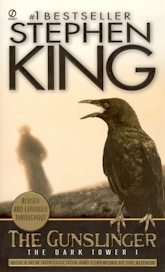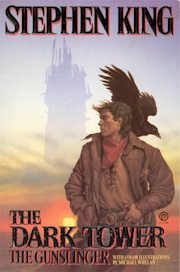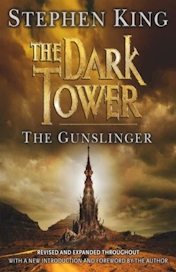
The Gunslinger (1982, 2003)
Dark Tower Book One
A New York Times Bestseller
Plume trade revised edition
cover art by Steve Stone
231 pages (left)
Signet books revised paperback
300 pages (right)



